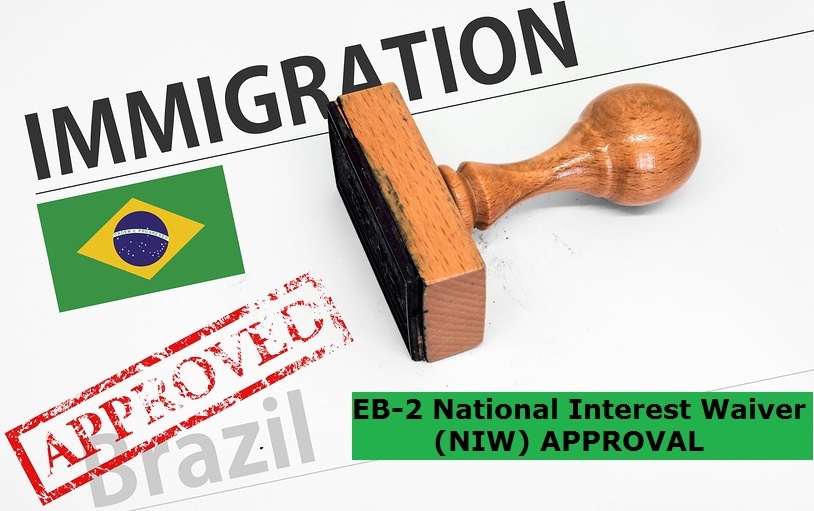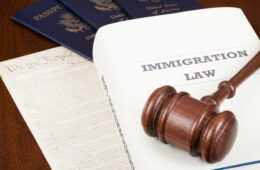
Understanding the Current Acceptance Rate of EB2-NIW around the Globe
EB2-NIW (Employment-Based Second Preference – National Interest Waiver)
EB2-NIW is a popular visa option for people from other countries who have advanced degrees or special skills. It allows them to work in the U.S. and contribute to the country without needing a job offer from a specific employer. This visa allows them to apply on their own i.e. self-petition which is suitable for skilled workers, researchers, and business owners.
Current Acceptance Rates and Trends:
The U.S. Citizenship and Immigration Services (USCIS) has been getting more applications for EB2-NIW visas lately. Usually, about 70% to 90% of these applications are accepted, depending on the applicant’s qualifications and the evidence they provide. This high acceptance rate is because the program focuses more on the applicant’s achievements and projects rather than traditional sponsorship.
However, acceptance rates vary by region and applicant’s background. For example:-
- Candidates from India and China often wait longer for their applications to be processed because of high demand. If they meet the requirements, their acceptance rates are still good.
- Applicants from Europe and Canada usually have shorter waiting period and higher acceptance rates because there are fewer applications as compared to other regions. Also, here the candidates often provide solid evidence based applications.
- Applicants from Africa and South America also tend to succeed if they can show how their work can contribute to areas like public health, technology, education, and the environment.
Factors Influencing EB2-NIW Acceptance Rates:
USCIS does not publish acceptance rates based on nationality, but several factors influence whether an application is accepted. These include the applicant’s area of expertise, the quality of the evidence they provide, and how their work aligns with U.S. interests. Applications that possess strong merit and can show how candidates can contribute to the national interest and wellbeing of the country tend to have higher approval rates.
Legal Basis: The Matter of Dhanasar
The rules for processing EB2-NIW petitions are based on a 2016 decision called “Matter of Dhanasar.” This decision replaced an older one and made the criteria easier to understand for skilled professionals.
In the Dhanasar case, the Administrative Appeals Office (AAO) formulated a test having three parts:-
1. Substantial Merit and National Importance: The proposed endeavor must be competent in fields like business, science, technology, healthcare, or education.
2. Well-Positioned Applicant: The applicant needs to show that they are capable of increasing their skill set. This includes their education, skills, past performance, and potential impact.
3. Benefit of Waiving Labor Certification: The applicant must show that not requiring a labor certification would not cause any harm. It means that their work is significant enough to skip standard employment procedures.
Overall, the Dhanasar decision has made the application process easier and simple, leading to higher acceptance rates for EB2-NIW applicants. It does so by focusing on the value of their contributions rather than just labor market conditions.
Noteworthy Examples and News:-
Healthcare Professionals during the COVID-19 Pandemic:
Recently, more healthcare professionals have successfully applied for the EB2-NIW visa because of the COVID-19 pandemic. Doctors, nurses, and other health experts who played important roles in public health were able to show how their services benefited the country.
For example, Dr. Rajesh Sharma, an epidemiologist from India, received an EB2-NIW visa for his research that helped control the spread of COVID-19. He provided evidence of his publications and letters of recommendation to highlight the importance of his work and how his services have contributed to the national interest.
STEM and Tech Professionals:
Another area that has a high acceptance rate is STEM, which includes jobs in Science, Technology, Engineering, and Mathematics. The U.S. government aims on advancing technology and improving cybersecurity, making it easier for software engineers, data scientists, and AI researchers to get approved for the EB2-NIW visa.
For instance, in 2022, a tech entrepreneur from Canada who worked on AI-powered clean energy projects successfully received the EB2-NIW visa. His work focused on making energy use more efficient and dealing with climate change, hence his work aligned U.S. goals for sustainability and innovation.
Challenges and Considerations:-
Even though many petitions are accepted, some can face difficulties if the evidence is weak or the work or services do not align with national interest. Recently, USCIS has been more careful and is asking for additional evidence i.e. requests for evidence (REFs), to prove the importance of the work or services of professionals for national interest.
Key Considerations for Applicants:
To increase their chances of approval, applicants should:
– Get strong recommendation letters from well-known experts in their field.
– Shows a record of valuable publications, projects, or patents.
– Clearly explain why their work is important for the country.
Overall, the acceptance rate for EB2-NIW petitions is high, usually between 70% and 90%. This is due to a clear legal framework that ensures the evidence based selection and a growing need for skilled professionals in areas like healthcare, STEM, and environmental sustainability. The Matter of Dhanasar decision has made it easier for talented people to contribute to the U.S. economy without needing an employer to sponsor them. With the right approach and strong evidence, applicants from around the world can take advantage of the opportunities offered by the EB2-NIW visa.



